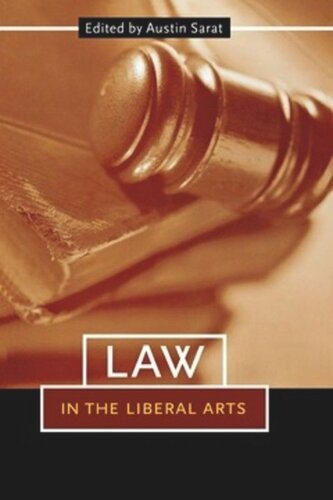

Most ebook files are in PDF format, so you can easily read them using various software such as Foxit Reader or directly on the Google Chrome browser.
Some ebook files are released by publishers in other formats such as .awz, .mobi, .epub, .fb2, etc. You may need to install specific software to read these formats on mobile/PC, such as Calibre.
Please read the tutorial at this link: https://ebookbell.com/faq
We offer FREE conversion to the popular formats you request; however, this may take some time. Therefore, right after payment, please email us, and we will try to provide the service as quickly as possible.
For some exceptional file formats or broken links (if any), please refrain from opening any disputes. Instead, email us first, and we will try to assist within a maximum of 6 hours.
EbookBell Team

5.0
108 reviewsShould law be left to the lawyers? Is legal education properly understood as technical education? Law in the Liberal Arts answers "no" and suggests that our society is not well served by the current professionalization of legal knowledge. An ideal approach to legal education, in Austin Sarat's view, would open up law and legal knowledge by making them the proper objects of inquiry in the liberal arts.
Legal education in the United States is generally located in law schools dedicated to professional training. Sarat believes that this situation impoverishes our ability to see the complex relations of law, culture, and society in all their variety and to connect theorizing about law with its application in the humanities and social sciences. The contributors to this book aim to assess the place of legal scholarship in the liberal arts by asking whether and how legal research and pedagogy are different in liberal arts settings than they are in law schools.